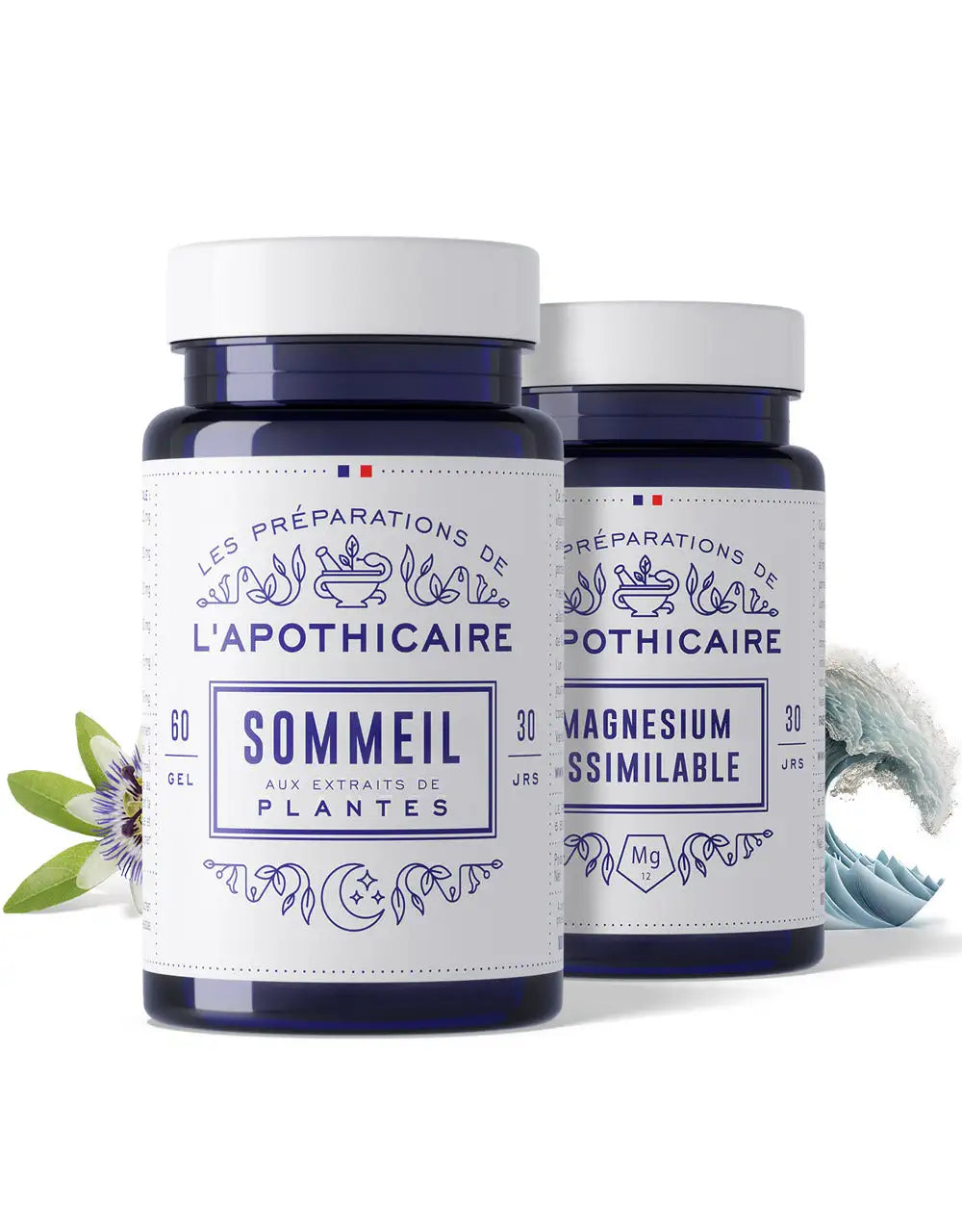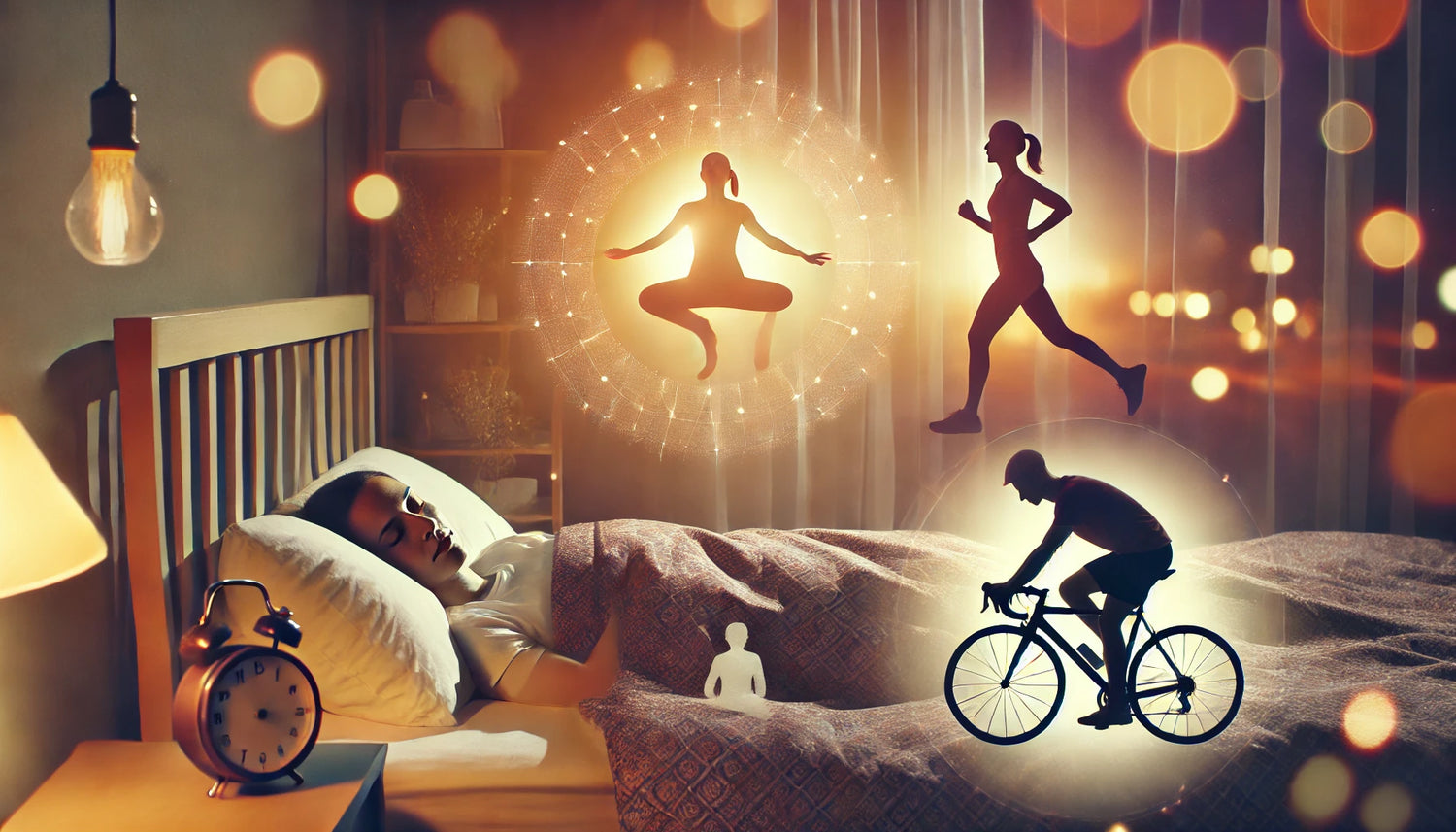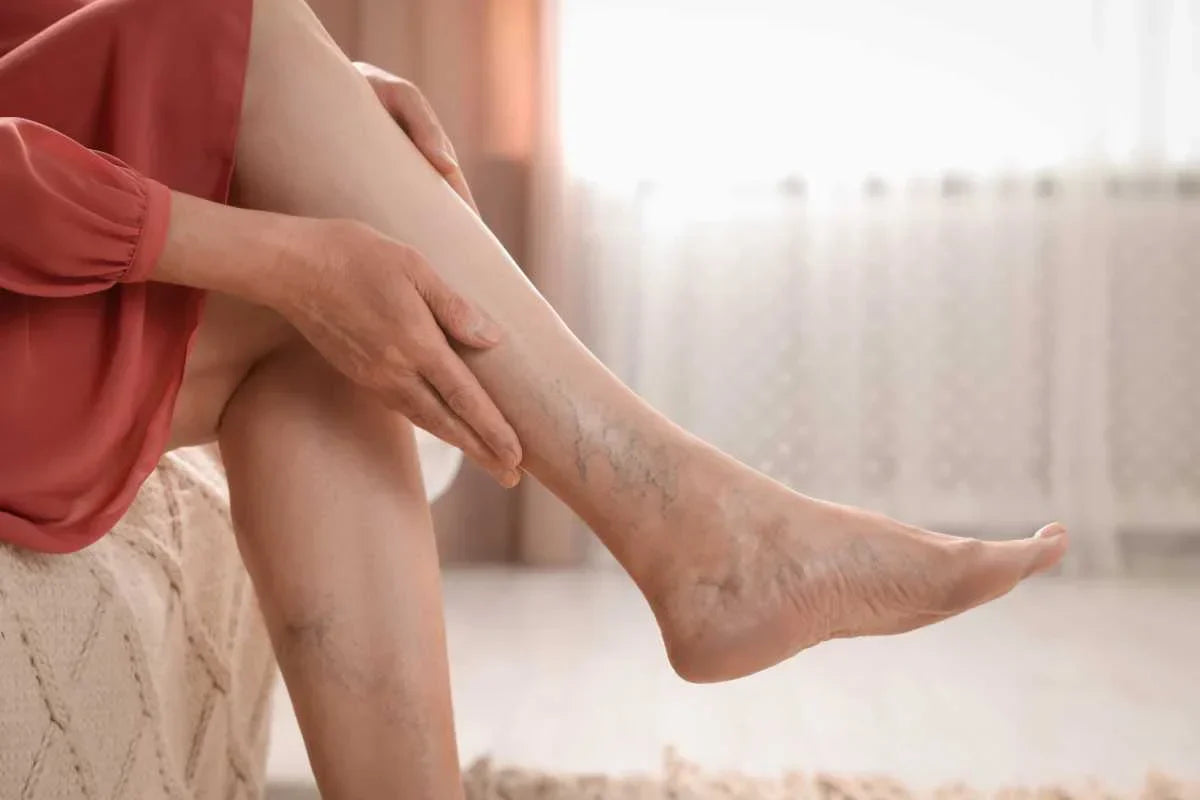Sleep and physical performance are closely linked, forming a virtuous circle. Quality sleep is essential for muscle recovery , motor memory consolidation and hormone regulation , all of which are fundamental to physical performance.
Additionally, regular exercise improves sleep quality by reducing stress, regulating circadian cycles, and promoting deeper, more restorative sleep.
Understanding and harnessing this entanglement can transform not only athletic performance, but overall quality of life.
We will first go through the multiple benefits of sport on the quality of our sleep, then we will cite the sports recommended for obtaining restorative and optimal sleep.
Then, we will discuss the influence of sleep, this secret weapon of all athletes to improve sports performance and prepare well for the and finally, we will give you some advice on this "sleep-sport" symbiosis.
- The benefits of sport on sleep
- The influence of sleep on sports performance
- Practical advice for harmonizing sport and sleep
The benefits of sport on sleep

But how does physical activity improve the quality of sleep?
Sleep-wake rhythm and physical exercise are closely related, any change in one will change the level of the other. The amplitude of circadian rhythms is increased by physical exercise.
Physical exercise reduces symptoms related to desynchronization in the event of jet lag or night work, for example, depending on one's practice schedule. The amplitude of rhythms, particularly that of temperature, is increased by physical activity
Physical exercise probably has a positive effect on the process of falling asleep through its effective regulation of temperature reduction.
Regular exercise improves vagal regulation, resulting in lower heart rate. Such vagal regulation may reflect improved parasympathetic control which could therefore improve both sleep and mood.
Growth hormone secretion is increased by repeated bouts of aerobic exercise. There is also growing interest in the relationship between sleep and metabolic function detailing the relationships between sleep loss, obesity and diabetes.
The influence of sleep on sports performance

Sleep is very important in muscle recovery.
Sleep plays a vital role in the body's recovery and repair, particularly through cellular regeneration . During deep sleep, the growth hormone, called somatotropin or Growth Hormone, is secreted with a peak of activity during the night, approximately every three hours. This hormone is essential for repairing damaged muscle cells and rebuilding fibers damaged during training . By promoting protein synthesis, it triggers a tissue repair process that strengthens muscle fibers, improving physical performance and reducing the risk of injury.
In addition, sleep helps reduce inflammation . Adequate rest reduces inflammatory markers, such as cytokines, which promotes better muscle recovery and limits pain associated with exercise. Sleep also plays a key role in energy storage, allowing the replenishment of glycogen stores, an essential energy source for muscles, thus preparing the body for future physical efforts. Finally, quality sleep contributes to injury prevention . Insufficient rest impairs tissue regeneration and reduces motor coordination, increasing the risk of injury. In summary, sleep is an essential phase of repair and preparation for the body, fundamental for health and physical performance.
Restful sleep plays a vital role in improving athletes’ physical and mental performance . By optimizing oxygen consumption, it improves aerobic capacity, a fundamental aspect for endurance sports such as running or cycling. In addition, a good night’s rest promotes gains in strength and speed. Well-rested athletes benefit from faster reaction times, better coordination, and enhanced overall physical performance.
Sleep also influences mental clarity and decision-making , two essential elements in competition. It improves concentration, memory and the ability to make strategic decisions. Studies show that quality sleep is associated with increased motivation, better attention, reduced perception of exhaustion and reduced sensation of pain. In contrast, lack of sleep can disrupt emotional stability, leading to stress, irritability and decreased motivation, which negatively impacts performance. A poor night's sleep can affect mood and general well-being by 4 to 5%, highlighting the importance of optimal rest to maximize physical and mental capacities.
Practical advice for harmonizing sport and sleep
Choosing the right time to exercise
Morning or early afternoon exercise is ideal for boosting alertness, improving mood, and avoiding interference with nighttime sleep . It is important to adapt training to your level, and to increase the workload very gradually. The intensity of your activity should increase gradually. A session that is too intense for your fitness level risks causing injury.
Avoid intense workouts in the evening . Intense workouts too close to bedtime (less than 2-3 hours) can disrupt sleep by increasing heart rate and body temperature.
If you prefer to train in the evening, opt for calming activities such as yoga, stretching or breathing exercises, unlike cycling and running which are more suitable for the morning.

Adopt a post-exercise routine
After a workout, take time to relax with techniques like meditation or a warm bath .
Reduce exposure to screens and blue light after exercise to promote the secretion of melatonin, which is essential for falling asleep.
Optimizing nutrition around sport
Eat a light but balanced meal after exercise , including complex carbohydrates and proteins while respecting the daily needs to promote recovery without weighing down digestion. It is necessary to favor slow sugars away from exercise such as pasta, bread, cereals, rice, preferably made from whole grains while fast sugars such as fruits, cereal bars or gingerbread for example are favored near exercise. Also a delay of 2 to 3 hours depending on the meals between taking and sports practice must be observed and finally enrich your meals with fruits and vegetables sources of fiber and vitamins.
Drink enough water throughout the day , but limit fluids one hour before bed to avoid waking up at night. Physical exertion causes significant water loss, either through sweating, which regulates body temperature, or through the use of glycogen (complex sugar) reserves to produce the energy needed for exercise.
It is recommended to hydrate regularly , that is to say 1 to 2 hours before the start of a physical activity then frequently during the effort and finally, during the recovery phase. The feeling of thirst is an already advanced symptom of dehydration.
Alkaline waters, rich in minerals, help buffer muscle acidity and limit the risk of cramps.
If your cramps are accompanied by increased fatigue, irritability, and symptoms such as eyelid twitching, you may also want to consider increasing your intake of magnesium- rich foods or even taking supplements.
You can consult a physiotherapist, a nutrition specialist or a sports doctor who will be able to give you extensive advice.
Adjust the intensity of the exercise
Incorrectly dosed exercise can lead to excessive fatigue, cramps and sleep disturbances . It is necessary to adapt training to your level and to gradually increase the workload in order to prevent the occurrence of injuries.
It is better to practice moderate physical activity regularly rather than sporadic intense sessions.
Listen to your body
Adapt your training volume to your energy level and the quality of your rest . Restorative sleep is as important as exercise. Sleep is a key factor in high-level sports performance. For amateurs, it is a source of rest and increased recovery. Sleep is a regulator of emotions and satiety . Thus, all phases of sleep must be respected.
Accumulated fatigue weakens the body and makes it more vulnerable to injuries. Whether it is during occasional sports practice such as on vacation or regularly, take care of your sleep hours during practice periods, quantitatively and qualitatively. You will feel the benefits and avoid unpleasant surprises.
If you notice that your sessions are negatively impacting your sleep, adjust the schedule or intensity.
Supplement with calming practices
Incorporate practices like yoga , Qigong or deep breathing to soothe the nervous system.
Use lavender essential oils or soothing infusions (chamomile, valerian) for a calming effect after sport, a guarantee of relaxation, calm and physical and mental relaxation.

Get a good night’s sleep with our Duo Sleep supplement!
A natural formula to calm the mind, reduce anxiety and promote rapid sleep.
Discover Duo Sleep!This bidirectional relationship between sport and rest highlights the importance of maintaining a harmonious balance between physical activity and sleep, thus enabling high levels of performance and well-being to be achieved.







